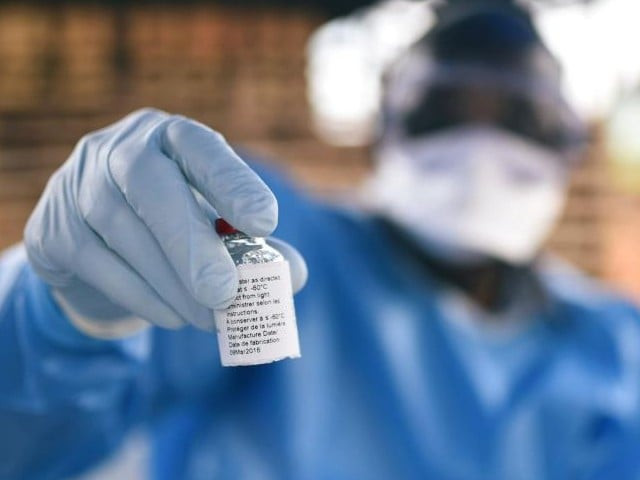Novartis to start antimalarial drug trials on Covid-19
Novartis has reached an agreement with the FDA to proceed with a Phase III clinical trial of hydroxychloroquine

PHOTO: REUTERS/FILE
"Trial is designed and implemented quickly to address the need for science-based investigation following early preclinical and clinical evidence1,2,3 that hydroxychloroquine may help hospitalized patients with Covid-19 disease," Novartis said in a statement.
Hydroxychloroquine is an antimalarial drug currently studied by experts as a possible treatment of Covid-19.
The announcement came amid a massive effort to develop a vaccine for coronavirus in Switzerland, the UK, US, and other countries within months and to release it to save lives.
The large trial sponsored by Novartis will be conducted at more than a dozen sites in the US.
The company plans to begin enrollment for this study within the next few weeks and said it is committed to reporting results as soon as possible.
Recently, Dr Anthony Fauci, the director of the US National Institute of Allergy and Infectious Diseases and a member of US President Donald Trump's task force, has said a vaccine against Covid-19 would take 12 to 18 months to develop.
Coronavirus the musical: US scientists turn virus into melody to aid research
Novartis said it will also make its hydroxychloroquine intellectual property available to support broad access if the medicine is approved for Covid-19 and proves beneficial.
The drugmaker said it would donate 130 million tablets of hydroxychloroquine to supply global clinical research efforts if the medicine is proven beneficial against Covid-19.
Separately at a video press conference for the Geneva UN Correspondents Association on Monday, Dr Martin Bachmann, an immunologist at the University of Bern and the UK's Oxford University, said he is working with the Swiss company Saiba to develop a vaccine within months.
"We want to provide a solution for Switzerland and then for the rest of the world. I believe we have a realistic chance of being successful," said Bachmann.
"The plan is that we will finish the optimisation of our lead vaccine candidates at the end of this month. We think we'd have a selected candidate," said Gary Jennings, a biochemist and COO from Saiba.
Humans to blame for spread of coronavirus and other 'zoonoses'
"And we've also instigated the workup of the pilot process for the manufacture with the Zurich University of Applied Sciences. They're assisting us in the development of the pilot process."
The scientists said they believe they could have a vaccine ready to use on the entire Swiss population by October in the second and third phases of trials.
The teams use virus-like particles that are not infectious and are self-assembling structures that look like a virus, but they do not have any genetic information.
Using a coat protein of a virus, it often self-assembles into a virus-like structure, said Bachman.
After being first detected in Wuhan, China late last year, the new coronavirus has spread to 185 countries and regions.
It has killed more than 166,200 people and infected over 2.42 million, according to the US’ Johns Hopkins University.



















COMMENTS
Comments are moderated and generally will be posted if they are on-topic and not abusive.
For more information, please see our Comments FAQ